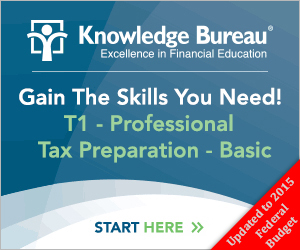Last updated: May 19 2015
Underground Economy Bigger Issue Than TFSA Tax Losses

It appears that tax cheaters are having a bigger effect on economic activity than tax free savers, when the cost of raising TFSA limits are contrasted with the cost of lost tax revenues due to the Underground Economy (UE).
Underground economic activity includes “skimming” – when legitimate business owners overstate expenses or understate income, the understatement of rental income, tips and the sale of illegal alcohol or the smuggling of tobacco. The UE has seen a 14% increase in activity in the period 2007 to 2012, a pace that’s 3% slower than the overall growth in the Canadian economy. Still, this represents 2.3% of the Gross Domestic Product (GDP), or about $42.4 Billion according to new information released on April 29th by Statistics Canada.
On the other hand, lost tax revenues from the tax free investments compounding in Tax Free Savings Accounts (TFSA), are estimated to reduce federal revenues by $1.1 billion in the 2015 to 2020 forecast period, according to the April 21, 2015 budget. In 20 years, the cost of raising TFSA limits to $10,000, (without further indexing), will be about $650 Million or 0.03% of GDP. Actual federal revenue losses are expected to be 0.3% of total federal revenues.
Yet the latter has drawn more attention from politicians than the former, which is interesting. The UE is highest in Ontario, Quebec, BC and Alberta, and is primarily concentrated in four industries:
- 28% in residential construction
- 14% in finance, insurance, real estate, rental, leasing and holding companies
- 14% in retail trade
- 12% in the accommodation and food services
CRA does have an Underground Economic Advisory Committee which meets regularly with representatives from various organizations representing those industries, and starting in January 2014, new penalties and criminal offences were introduced to fine businesses using electronic suppression software to hide sales and taxes. Further, close to 8000 files in the target areas were audited in 2014-14.
Of all taxfilers in Canada, about 68% pay taxes according to recent CRA final stats for the 2012 tax year. They may well agree with three principles in favor of the reduction in UE activities and expect future governments to preserve them:
- Preservation of the integrity of the tax base. That’s important to business owners who are forced to compete against those who don’t pay taxes.
- Protection of Canada’s tax base. Taxes and prices shouldn’t have to rise to make up for tax cheats.
- Preservation of thee key hallmarks the tax system that lead to compliance: fairness, equity and simplicity.
Can more can be done by key influencers to educate the public and business owners on the benefits of full compliance? Absolutely. Professionals in the tax and financial services can lead in their role as financial educators to help their clients understand the benefits of tax compliance and the significant penalties for non-compliance. Let us know your thoughts on the role of professionals in this matter.
Evelyn Jacks is President of Knowledge Bureau, which is the home of the Distinguished and Master Financial Advisor Designations.

